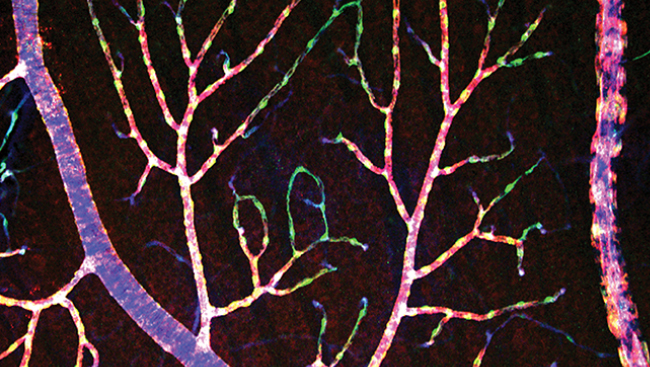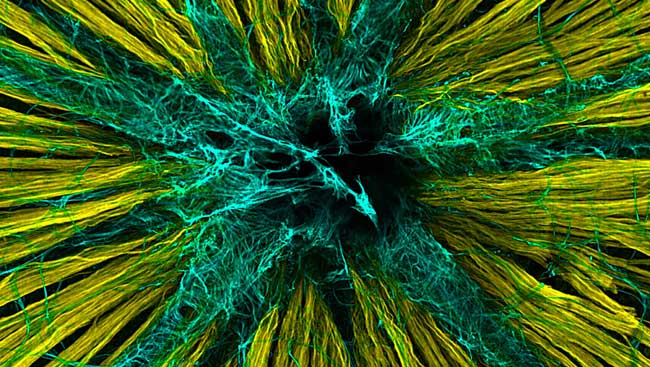Brain malformations, especially those affecting the cerebral cortex, are common causes of intellectual disability and epilepsy. Recent advances in genetics, imaging, and cell biology have substantially increased our knowledge of the mechanisms underlying cortical development and how it can go awry.
In this webinar, select faculty from the 2015 Neurobiology of Disease Workshop will deepen the discussion that began during the live session on the genes, cellular pathways, processes, and structures commonly affected in brain malformations, with an emphasis on PI3K/mTOR signaling and mTORopathies. New developments in the field will also be discussed.
The Neurobiology of Disease Workshop provides students and early-career scientists with in-depth overviews of diseases of the nervous system.
Speakers
Angelique Bordey, PhD
Angelique Bordey is a professor in neurosurgery and cellular and molecular physiology at Yale School of Medicine. Bordey studies cortical development in the context of monogenic disorders associated with special and cognitive disabilities and epilepsy. Her expertise is related to tuberous sclerosis complex and focal cortical dysplasia, two developmental disorders due to mutations in the mTOR signaling pathway. Bordey received an MS in chemistry from the National School of Engineering in Lyon and MS in neurophysiology and PhD from Louis Pasteur University in Strasbourg. She completed a postdoctoral fellowship at the University of Alabama at Birmingham.
Mustafa Sahin, MD, PhD
Mustafa Sahin is a professor of neurology at Harvard Medical School and director of the Multidisciplinary Tuberous Sclerosis Program (which he established) at Boston Children’s Hospital. He is also the director of the Translational Neuroscience Center at Boston Children’s Hospital. Sahin's research on nerve fiber connections has improved our understanding of nerve function and new treatment approaches to epilepsy and autism. He has received numerous awards, including the 2005 Young Investigator Award from the Child Neurology Society and a 2009 John Merck Scholar Award. Sahin received his MD and PhD from Yale University School of Medicine and completed an internship at Children’s Hospital of Philadelphia and residencies at Children’s Hospital of Philadelphia and Boston’s Children Hospital.
Peter Crino, MD, PhD
Peter Crino is a professor and chair of neurology at the University of Maryland School of Medicine. Previously, he was a professor and vice chair for research at Temple University School of Medicine’s Shriners Hospital Pediatric Research Center and director of the Temple University Comprehensive Epilepsy Center. Crino specializes in epilepsy and is studying mechanisms of abnormal brain development that lead to brain malformations, epilepsy, autism, and intellectual disability. Crino received his MD from Yale University and PhD from Boston University. He completed his residency in neurology and fellowship in epilepsy at the University of Pennsylvania.









